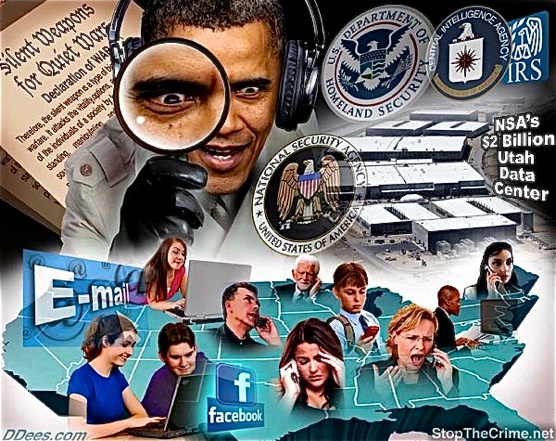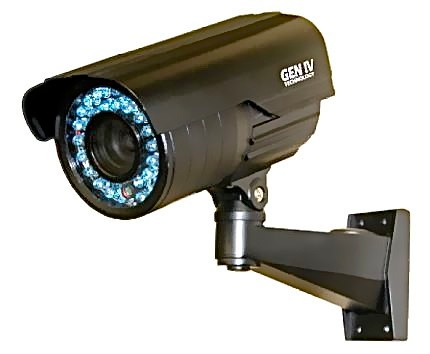Blind Hog Finds Acorn
Even a blind hog can find an acorn on occasion. The truth of that adage was proved again a few days ago.

The proof, however, came from an unlikely source, the U.S. House of Representatives.
When some youngster among the representatives responded to the public hysteria over privacy and introduced a bill to prohibit intelligence services from gathering phone records, cooler heads prevailed and killed the bill. In short, this was an occasion when the House got it right and finally found an acorn.

The brouhaha over NSA collecting and preserving long distance phone bills is frenzied hysteria fed by the media directing attention away from real, every day invasions of privacy on every corner and in every home.
Records of long distance phone calls have been kept by someone or something continuously since the first commercial long distance call was made.
Long distance phone bills are the service providers’ records for the billing period. The record will show from which lines calls were made, the lines called, and the time and length of the calls. That’s it. No names of the individuals on either end of the line; no subject matter; no description of clothes or the lack thereof; nothing but date, time, and number and city called.
These records are essential business records for telephone companies and are kept for various periods of time by the companies. Intelligence agency computers simply collect these records and keep them for longer periods than the companies.

The only thing the intelligence computers are screening for are the telephone numbers from and to specific numbers identified as belonging to suspected terrorists. Computers scan those 600 million calls in milliseconds and will kick out the phone numbers of calls to or from a number on the watch list. For example, if you inadvertently called one of those numbers by a mistake in dialing, your other calls would be monitored and even subjected to a search warrant if the circumstances warrant further scrutiny.

If that “violation of privacy” is of concern, why is there no hue and cry about the real violations of privacy from the moments our feet hit the floor after a night’s sleep. Head for the supermarket for a quart of milk for your cereal. Look up in the parking lot. Those small blinking lights record your every move, what you are wearing, what you are carrying, and whether your hair is combed. Then look up when you check out. There’s another small light recording what you bought and whether you paid with cash or card.
As you leave the store, local computers are already recording and distributing what you bought. Did you buy the local store brand or a competitor? How many store brands did you buy compared with other purchases? What can be gleaned from that information to make the store brand more appealing the next time you venture in front of the computer?
Then stroll down the adjoining street. There are those blinking lights again, recording every move you make, just like they recorded the terrorists planting the bombs at the Boston Marathon.
So jump in the car and head for home. On your way, you are recorded by a policeman pointing a radar gun at you and that blinking light on the traffic light is recording your compliance with other traffic laws.
Ah!, finally the comfort, quiet, and privacy of home. You feel so relaxed, you write and mail a check to a charity you just read about. Five days later, however, you cannot understand that big bulge in your mail box.
That stack of mail contains six envelopes stuffed with address labels, note pads, or other doodads from charities you did not know existed. Is there really one charity for every man and woman who served in uniform in Iraq or Afghanistan? How did these organizations get the idea that you might be a soft touch?
Trash those pleas for help and get on with ordering those shoes that caught your eye in a catalog that was just stuffed in your mailbox.

There goes your mailbox again. Five days later, it is stuffed with a new batch of “stuff.” This time the large pack contains catalogs for clothing to meet every sex and need.
Think twice before you write that contribution check for the campaign of your favorite candidate or political party. Someway or somehow, your interest in politics is going to become known throughout the land. Expect to be flooded with requests for assistance in political matters big and small.
So here’s the perspective.
There is rarely a whimper about various agencies, businesses, and organizations gathering, storing, and SHARING all types of personal information about us.
What and where we eat, how often we put fuel in our vehicles, what we wear, who we vote for, whether we use cash or card, how fast and where we drive is A-OK. It is outrageous, however, when government agencies charged with protecting us try to find out who terrorists are talking with.
The gathering of information on terrorist activity by tracking telephone traffic that prompted the closure of 22 U.S. Embassies and Consulates in the Mideast and a month long, world wide travel alert should be warmly embraced.
The members of Congress who found the acorn of common sense in the ridiculous hysteria about that intelligence gathering activity deserve thanks, not demands to tie their hands.
enough





